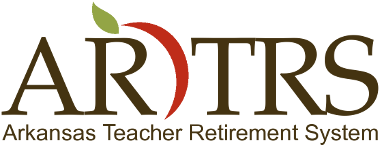The 93rd General Assembly
Joint Public Retirement & Social Security Committee (JRC)
The 93rd General Assembly has entered extended recess. The recess is expected to last until September 2021, when the General Assembly plans to take up redistricting for the state.
I would like to thank all members of the Joint Retirement Committee for their time and patience spent working with ATRS staff and the ATRS Board of Trustees to keep our system strong while protecting the benefits of Arkansas educators. Here is the list of the committee members and alternates by chamber:
2021 Senate Members of Joint Retirement Committee
Senator Kim Hammer (Co-Chair), Senator Linda Chesterfield (Co-Vice Chair), Senator Joyce Elliott, Senator Jimmy Hickey, Jr., Senator Keith Ingram, Senator Missy Irving, Senator Greg Leding, Senator Jason Rapert, Senator Bill Sample and Senator Larry Teague.
2021 House Members of Joint Retirement Committee
Representative Les Warren (Co-Chair), Representative Gary Deffenbaugh (Co-Vice Chair), Representative Bruce Coleman, Representative Cindy Crawford, Representative Brian S. Evans, Representative John Maddox, Representative Mark Perry, Representative Jay Richardson, Representative Johnny Rye, and Representative Stu Smith.
The ATRS Board is also grateful for all the assistance and advocacy by member organizations. Your voices and concerns about issues affecting ATRS have been heard by the JRC. The cooperation from Governor Hutchinson's office and others is also recognized and appreciated.
Summary of Legislation Affecting ATRS
All of the bills in the ATRS sponsored package are now law. Here is a summary of the ATRS Acts of 2021:
Act 189 repeals some obsolete language and allows ATRS to treat all members the same in regard to including compensation for accumulated sick leave in their final average salary.
Act 190 adds fairness to the process that ATRS uses to resolve errors involving unreported service.
Act 220 requires ATRS employers to submit contributions electronically and adds administrative efficiency for the contribution collection process.
Act 221 lowers the current requirements for using a higher reciprocal final salary in calculating ATRS retirement benefits. All ATRS members that have reciprocal service in one or more of the other state retirement systems are encouraged to contact ATRS for counseling regarding their reciprocal service.
Act 223 clarifies the disability retirement process and adds a second review process after a denial for some additional fairness for our members.
Act 279 makes technical corrections that will streamline the Teacher Retirement laws by eliminating obsolete language and codifying existing practice and ATRS Board intent.
ATRS worked with members of the General Assembly to make legislative changes that were not part of the ATRS package. Here is a summary of the resulting Acts:
Act 290 does not affect the existing eligibility requirements for full retirement. A Teacher Retirement member must have 28 years of service or have attained the age of 60 in order to receive full retirement benefits. This Act does not change those requirements. This Act only removes the one-month separation period required for members with 38 years of service as long as they are at least 60 of age. In spite of the confusion around this Act, I would like to assure you that it is a member friendly law that is helpful to the Teacher Retirement System.
Act 427 will clarify the ATRS process for establishing reciprocal service for participating in an alternate retirement plan. Fairness is added for members that have served Arkansas at both the higher-education level and the secondary-education level by providing exceptions for withdrawals made after the member reaches the age of 59 ½ and eligible rollover transactions.
Act 443 will allow public school employees serving in roles such as paraprofessionals, food service staff, and bus drivers the opportunity to have additional paid training that will not jeopardize their noncontributory status.
Act 691 allows high school students working during the summer as part of specific summer work programs to not be considered employees of the school. ATRS will not lose any contributions that would be made by some other employee.
Act 711 clarifies and improves the subchapter that deals with reciprocity. It allows each system to define the final average salary used in reciprocal calculations. It contains a grandfather clause regarding the use of the highest final average salary for anyone who currently has reciprocal service. All ATRS members that have reciprocal service in one or more of the other state retirement systems are encouraged to contact ATRS for counseling regarding their reciprocal service.
For more information regarding the 2021 legislation, visit our ATRS Legislation page on the website.
This executive director update concludes the weekly updates from the regular session.
Stay in Touch with ATRS and View YOUR Account Information
The ATRS website allows members to have direct access to specific member account information. Now, approximately 24,500 members have direct account access to individualized account information. Here is the link to the instructions to sign up: www.artrs.gov/registration.
You can also sign up to obtain these executive director updates through your private email address. Updates are made throughout the year such as at retirement season and other times when information needs to be shared. Now, over 26,500 people have signed up to receive this executive director update by direct email delivery. It is always a great pleasure for ATRS staff to learn of more ways to provide information to ATRS members, employers, beneficiaries, government officials, and the public. The ATRS Board is committed to providing a system that is member friendly and transparent. Remember that ATRS is here to serve you.
Best regards,
Clint Rhoden
Executive Director ATRS
Office: (501) 588-4367
Mobile: (501) 291-1623
clintr@artrs.gov
